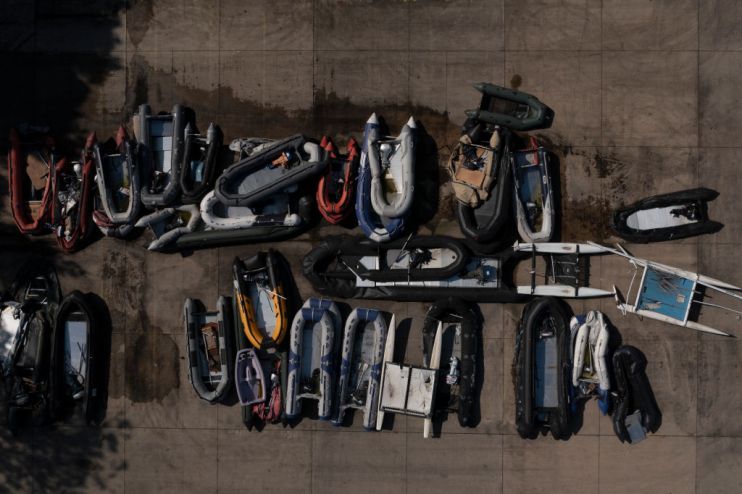Extremist politics will continue to take root unless we solve migration

The refugees seeking Britain as a home today are often fleeing conflict and persecution. The refugees of tomorrow will have the damaging effects of climate change and demographic growth to worry about as well.
The current levels of illegal boat crossings in the UK are higher than ever. On Tuesday, even in the bitter November weather, 799 people took the treacherous journey across the English channel to make it to our shores in hope of a better life. This marks a year when more than 20,000 people have made this crossing – quadruple what it is in most years. Since 1999, 292 people have lost their lives making this perilous journey.
But all the evidence suggests this may be just the start. By 2050, the African population is set to double in size. Nigeria alone will have 400 million people living in a region a similar size to France. On top of this, research from the Foreign Office shows that at current rates of global warming hundreds of millions of people could be displaced in at-risk regions over the next century.
The result of this perfect storm of demographic boom and climate crises will be catastrophic. Not only will the climate breakdown likely cause resource wars in these already troubled regions, as the Government’s former Chief Scientific Advisor Sir David King has previously warned. But this trifecta of conflict, unliveable temperatures and demographic change will trigger a gigantic shift in people from the Global South northwards, mostly to Europe. Since 2010, there have been 6.16 million first time applicants for asylum in the EU. It is hard to fathom the level of applicants we would see with extreme climate breakdown and an extra billion people in Africa.
This humanitarian crisis will quickly spillover into a political one. In any situation where there are too many people, in too small a place, with too few resources, tensions hit boiling point pretty quickly.
In the continent, it is already breeding polarisation with Marine Le Pen in France, the AfD in Germany and the League in Italy soaring up the polls. As Nigel Farage has shown with his constant stream of opportunistic videos filming boat crossings, this nationalism is also something which has traction – albeit less so – here in the UK. If we do not get ahead of this issue now, it poses a danger to moderate and tolerant politics and leaves open the opportunity for extreme and divisive politics in the UK just as it has across many countries in Europe.
This depressing fate is not predetermined. We can lessen the severity of this crisis by tackling climate change at home and investing in green energy abroad.
Of course, we need urgent action on global decarbonisation.
Last month, the UN announced that the World’s first climate-change induced famine is taking place in Madagascar. This, unfortunately, is only the beginning.
The only way we can decrease the chance of more of these happening, and the consequences for mass migration that will likely follow, is to keep global warming to lower than 2 degrees, or even better, 1.5 degrees. This was the target set out in the Paris agreement and it is imperative that large emitters such as China, India and the US – which in total make up half of the world’s emissions – start making major steps to bringing down their emissions. Boris Johnson has done his best to throw Britain’s weight around at Cop26 this week, by striking agreements on deforestation and methane emissions. Beijing signed up to the first, and pulled away from the second.
There also needs to be an international coal-phase out agreement. China has agreed to stop building coal-fired power plants internationally, but has pushed ahead with plans for domestic ones.
In Africa, there needs to be significant investment in natural assets such as solar and wind, igniting a green growth revolution in the years to come and preventing an influx of migration. In turn, this would reduce the economic pull factors of countries in Europe and reduce migration flows northwards. Even before the foreign aid budget is lifted, 0.5 per cent of GDP is still an enormous amount of money.
There needs to be a strong and concerted push to drive this remaining budget into developing these countries into the booming green economies of the future.
These next three decades could be written in history as a period of climate breakdown, humanitarian crises and far-right nationalism or we can build a better future to safeguard our political systems, our earth and our people. The choice really is ours.
